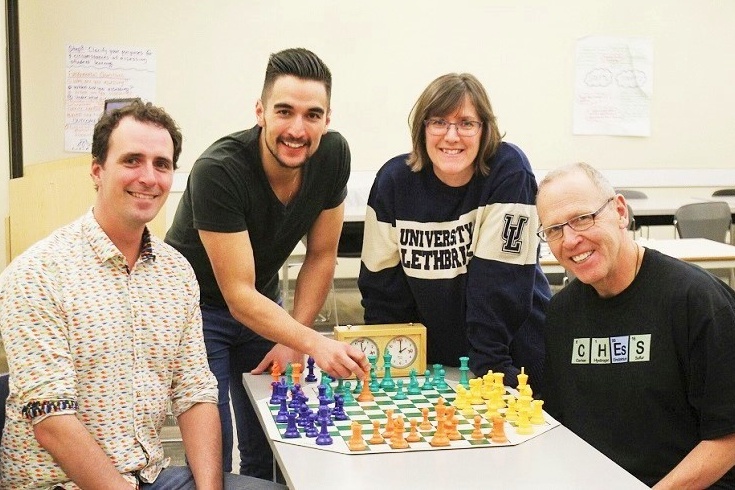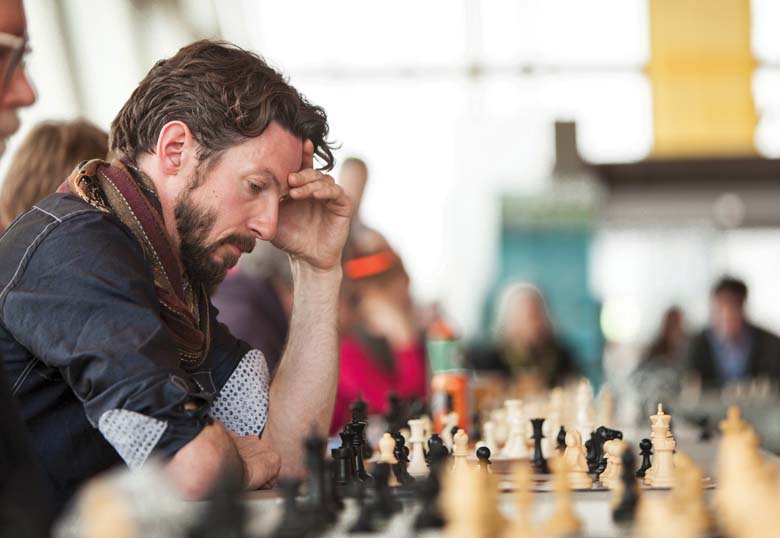


Dr. Lance Grigg, an associate professor in education at the University of Lethbridge, had the idea of launching this project after studying an unprecedented case in 2016. When a 12-year-old was charged with assault, Judge Derek Redman decided to convict him to practice basketball at least five hours a week. Since this kind of sentence is accepted in Alberta's judiciary system, Grigg came up with the idea of using chess as a more effective treatment.
He presented the idea to some colleagues and put together a team with Dr. Monique Sedgwick, an associate professor in nursing, and Dr. Jeffrey MacCormack, assistant professor in education. Starting in January, five adolescents were referred to the program. Their sentence was to practice chess with the instructors on Friday afternoons.

The campus of the University of Lethbridge | Photo: University of Lethbridge
The science behind it is related to executive functions. MacCormack brought this to the table when Grigg shared the idea with him. Executive functions are a set of cognitive processes necessary for the cognitive control of behaviour. Higher order executive functions require the simultaneous use of multiple basic executive functions and include planning and fluid intelligence (i.e., reasoning and problem solving). When trying to solve problems at the chessboard, our minds are forced to put these functions to work.
The main purpose is to get the youngsters to think ahead and acknowledge that their actions have consequences. In order to do so, the game is used as a tool to create analogies with real-life situations. Josh Markle, a research assistant of the program, told UNews, "We have conversations about chess and we don’t have to go very far before they start to draw parallels between what we’re talking about and their own lives".
Sedgwick emphasised that there have not been too many initiatives similar to this one, the kind that creates precedents for future investigation. “There’s very little in the research literature that deals with the youth experience involved in the criminal justice system, let alone in alternative sentencing,” says Sedgwick. “We want to hear their voices to see whether or not they feel that this program has changed them somehow. We also want to hear from the adults who are involved with these youths to see if the chess program is influencing how the youth see themselves.”
Grigg reported that some of the youngsters even kept coming to practice after having finished their sentence, and started to play online. In an interview with CBC, he said that they also identify themselves as chess-players among their friends. "They always carry a chessboard in their backpacks," said Grigg.

Andy Davies also promoted chess after graduating from the University of Lethbridge; he established chess clubs in three middle schools | Photo: University of Lethbridge
The "Chess for Life" team wants to expand this initiative throughout Alberta. The program is not yet completely funded, but they created a webpage to receive donations. This is undeniably a great channel to find out more about the benefits of chess as an educational tool.